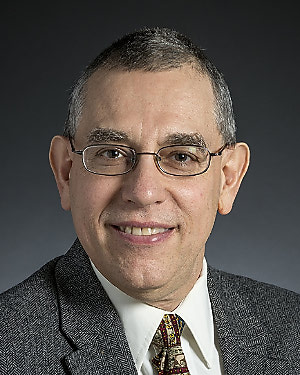Research Lab Results
-
Thomas W. Donner Lab
The Thomas W. Donner Lab focuses on type 1 and type 2 diabetes, with an emphasis on the prevention of complications in patients with these conditions. We’re currently collaborating with Dr. Abdel Hamad to inhibit B-regulatory cell apoptosis through a novel monoclonal antibody that targets the probable apoptotic factor. We also lead a multi-center, international consortium of researchers studying ways to prevent type 1 diabetes and preserve insulin secretion in people who have been recently diagnosed with the chronic condition.
-
Rachel Damico Lab
Work in the Rachel Damico Lab explores topics within the fields of vascular biology and pulmonary medicine, with a focus on acute lung injury and apoptosis in lung diseases. Our studies have included examining idiopathic and scleroderma-associated pulmonary arterial hypertension, vascular receptor autoantibodies, and the link between inflammation and the Warburg phenomenon in patients with pulmonary arterial hypertension. We have also researched the inhibitory factor of macrophage migration and its governing of endothelial cell sensitivity to LPS-induced apoptosis.
-
Amit Pahwa Lab
The Amit Pahwa Lab conducts research on a variety of topics within internal medicine. Our most recent studies have explored misanalysis of urinalysis results, urinary fractional excretion indices in the evaluation of acute kidney injury and nocturnal enuresis as a risk factor for falls in older women. We also investigate cancer diagnostics and treatments. In this area, our recent research has included studying cutaneous shave biopsies for diagnosing primary colonic adenocarcinoma as well as growth inhibition and apoptosis in human brain tumor cell lines using selenium.
-
J. Marie Hardwick Laboratory
Our research is focused on understanding the basic mechanisms of programmed cell death in disease pathogenesis. Billions of cells die per day in the human body. Like cell division and differentiation, cell death is also critical for normal development and maintenance of healthy tissues. Apoptosis and other forms of cell death are required for trimming excess, expired and damaged cells. Therefore, many genetically programmed cell suicide pathways have evolved to promote long-term survival of species from yeast to humans. Defective cell death programs cause disease states. Insufficient cell death underlies human cancer and autoimmune disease, while excessive cell death underlies human neurological disorders and aging. Of particular interest to our group are the mechanisms by which Bcl-2 family proteins and other factors regulate programmed cell death, particularly in the nervous system, in cancer and in virus infections. Interestingly, cell death regulators also regulate many other cellular processes prior to a death stimulus, including neuronal activity, mitochondrial dynamics and energetics. We study these unknown mechanisms. We have reported that many insults can trigger cells to activate a cellular death pathway (Nature, 361:739-742, 1993), that several viruses encode proteins to block attempted cell suicide (Proc. Natl. Acad. Sci. 94: 690-694, 1997), that cellular anti-death genes can alter the pathogenesis of virus infections (Nature Med. 5:832-835, 1999) and of genetic diseases (PNAS. 97:13312-7, 2000) reflective of many human disorders. We have shown that anti-apoptotic Bcl-2 family proteins can be converted into killer molecules (Science 278:1966-8, 1997), that Bcl-2 family proteins interact with regulators of caspases and regulators of cell cycle check point activation (Molecular Cell 6:31-40, 2000). In addition, Bcl-2 family proteins have normal physiological roles in regulating mitochondrial fission/fusion and mitochondrial energetics to facilitate neuronal activity in healthy brains.
Principal Investigator
Department
-
Jun O. Liu Laboratory
The Jun O. Liu Laboratory tests small molecules to see if they react in our bodies to find potential drugs to treat disease. We employ high-throughput screening to identify modulators of various cellular processes and pathways that have been implicated in human diseases from cancer to autoimmune diseases. Once biologically active inhibitors are identified, they will serve both as probes of the biological processes of interest and as leads for the development of new drugs for treating human diseases. Among the biological processes of interest are cancer cell growth and apoptosis, angiogenesis, calcium-dependent signaling pathways, eukaryotic transcription and translation.
-
Greider Lab
The Greider lab uses biochemistry to study telomerase and cellular and organismal consequences of telomere dysfunction. Telomeres protect chromosome ends from being recognized as DNA damage and chromosomal rearrangements. Conventional replication leads to telomere shortening, but telomere length is maintained by the enzyme telomerase. Telomerase is required for cells that undergo many rounds of divisions, especially tumor cells and some stem cells. The lab has generated telomerase null mice that are viable and show progressive telomere shortening for up to six generations. In the later generations, when telomeres are short, cells die via apoptosis or senescence. Crosses of these telomerase null mice to other tumor prone mice show that tumor formation can be greatly reduced by short telomeres. The lab also is using the telomerase null mice to explore the essential role of telomerase stem cell viability. Telomerase mutations cause autosomal dominant dyskeratosis congenita. People with this disease die of bone marrow failure, likely due to stem cell loss. The lab has developed a mouse model to study this disease. Future work in the lab will focus on identifying genes that induce DNA damage in response to short telomeres, identifying how telomeres are processed and how telomere elongation is regulated. -
Lewis Romer Lab
Work in the Lewis Romer Lab focuses on the responses of vascular systems to disease and injury. Using cultured human endothelial cells and fibroblasts from mice that lack expression of the FAK- or Src-family kinases, we’re exploring several topics. These include the effect of inflammatory cytokine on cell adhesion to the extracellular matrix; the role of FAK signaling in inhibiting apoptosis; and the function of FAK- and Src-family kinases in cell-matrix interactions during adhesion and motility. -
Lee Martin Laboratory
In the Lee Martin Laboratory, we are testing the hypothesis that selective vulnerability--the phenomenon in which only certain groups of neurons degenerate in adult onset neurological disorders like amyotrophic lateral sclerosis and Alzheimer's disease--is dictated by brain regional connectivity, mitochondrial function and oxidative stress. We believe it is mediated by excitotoxic cell death resulting from abnormalities in excitatory glutamatergic signal transduction pathways, including glutamate transporters and glutamate receptors as well as their downstream intracellular signaling molecules. We are also investigating the contribution of neuronal/glial apoptosis and necrosis as cell death pathways in animal (including transgenic mice) models of acute and progressive neurodegeneration. We use a variety of anatomical and molecular neurobiological approaches, including neuronal tract-tracing techniques, immunocytochemistry, immunoblotting, antipeptide antibody production, transmission electron microscopy and DNA analysis to determine the precise regional and cellular vulnerabilities and the synaptic and molecular mechanisms that result in selective neuronal degeneration.
-
Mahendra Damarla Lab
Work in the Mahendra Damarla Lab focuses primarily on the field of vascular biology. Much of our research involves exploring alternatives to mechanical ventilation as a therapy for acute lung injury. We investigate mitogen-activated protein kinase-activated protein kinase 2 as a method to mediate apoptosis during lung vascular permeability by regulating movement of cleaved caspase 3. We have also conducted research on the prevalence of confirmatory tests in patients hospitalized with congestive heart failure or chronic obstructive pulmonary disease (COPD).
-
Ted Dawson Laboratory
The Ted Dawson Laboratory uses genetic, cell biological and biochemical approaches to explore the pathogenesis of Parkinson's disease (PD) and other neurologic disorders. We also investigate several discrete mechanisms involved in cell death, including the role of nitric oxide as an endogenous messenger, the function of poly (ADP-ribose) polymerase-1 and apoptosis inducing factor in cell death, and how endogenous cell survival mechanisms protect neurons from death.



